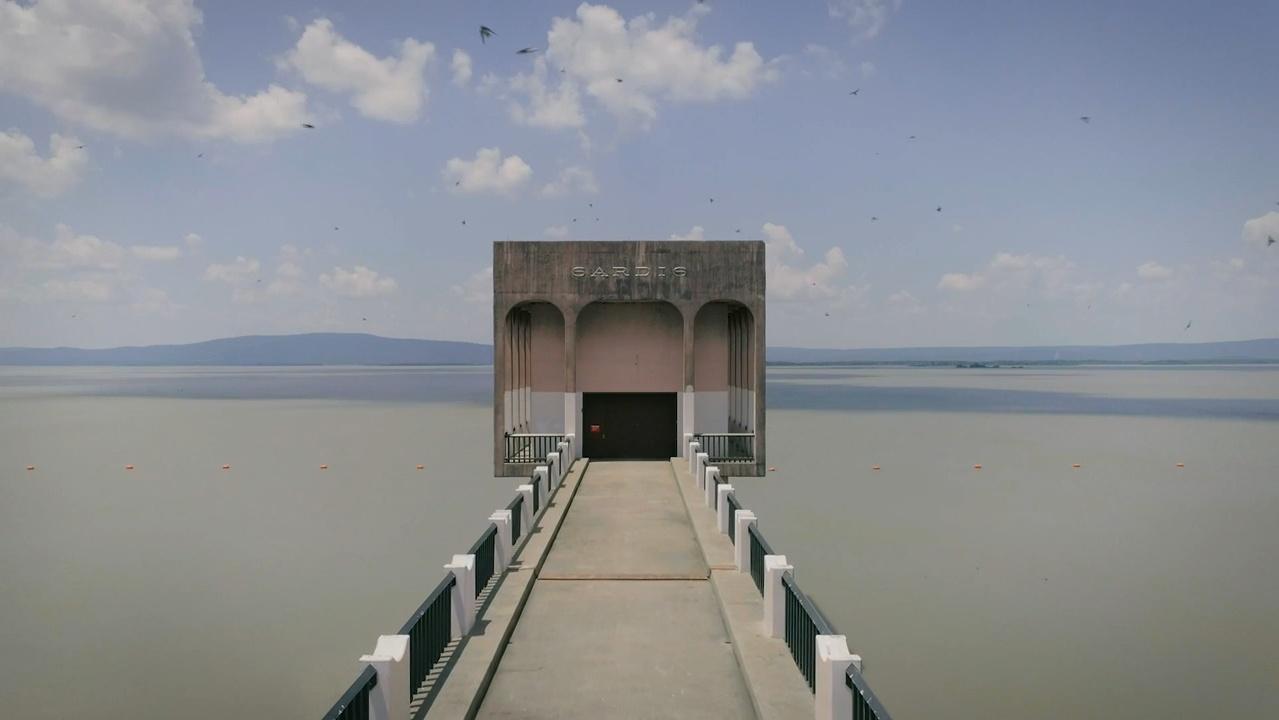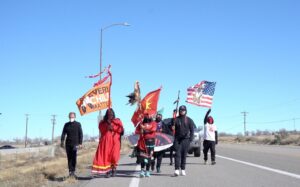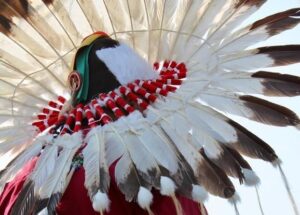SARDIS LAKE, Okla. — Deep in the Choctaw Nation, a picturesque lake is host to an unusual sight: an island populated by rows of headstones. This cemetery floating in a man-made lake is the last relic of what was once the town of Sardis, Oklahoma. Like many towns in the state, Sardis was flooded by the Army Corps of Engineers. With promises of tourism dollars and flood control, the Army Corps constructed dams, inundated towns and forced people off their land to build lakes. Just a hundred years after the Choctaws and other Southeastern Indian Nations were forced from their homelands onto the Trail of Tears to modern-day Oklahoma, the federal government began another land-grab program in the form of eminent domain. Homes, jobs and identities were all lost to the water.
But the story of Sardis isn’t unique: towns and communities have been flooded and people displaced across the United States and Indian Country.
I met Joe and Betty Brown, Tobe and Rowletta Anderson, and Don Huddleston as I and my co-producer, reporter Allison Herrera, were researching these stories of displacement in Oklahoma. My tribe, the Choctaw Nation, was at the time embroiled in a lawsuit to protect the water in Sardis Lake from being sold to pay off the debt that Rowletta references in “Sardis.” The Nation has since settled, but the water downstream of Sardis Lake in the Kiamichi River was part of the settlement and is now due to be piped 200 miles away to Oklahoma City, to provide water to the city’s residents. The water, and the people within the watershed, will once again be affected by the exploitation of their waterways.
The land and resource exploitation within the Choctaw Nation goes back to the time of first contact with Europeans and Euro-Americans, and continues today. Water is not only life, but our water sources, like our land, can be inherently intertwined with our identities. In watching “Sardis,” I call on viewers to ask themselves where their water comes from, on whose land do they reside, and if they don’t already know, to find out what is the history of that land, what are the stories it holds, and who are the people whose identities are tied to it.
Colleen Thurston is the director of “Sardis” and is a member of the Choctaw Nation.



